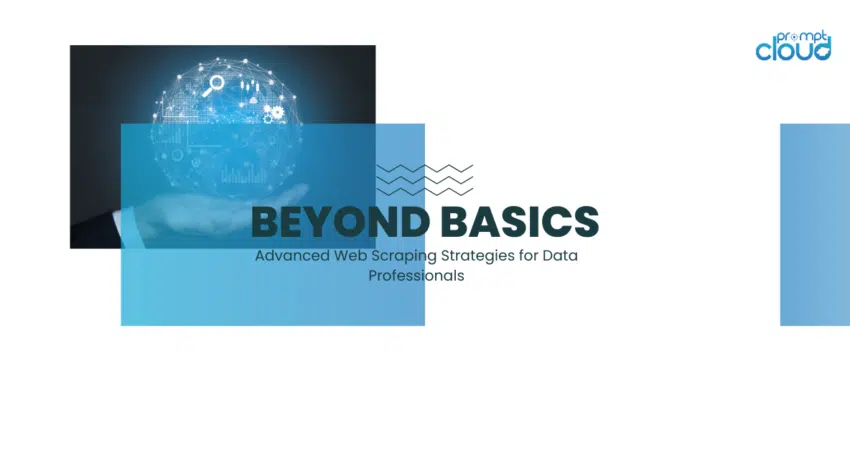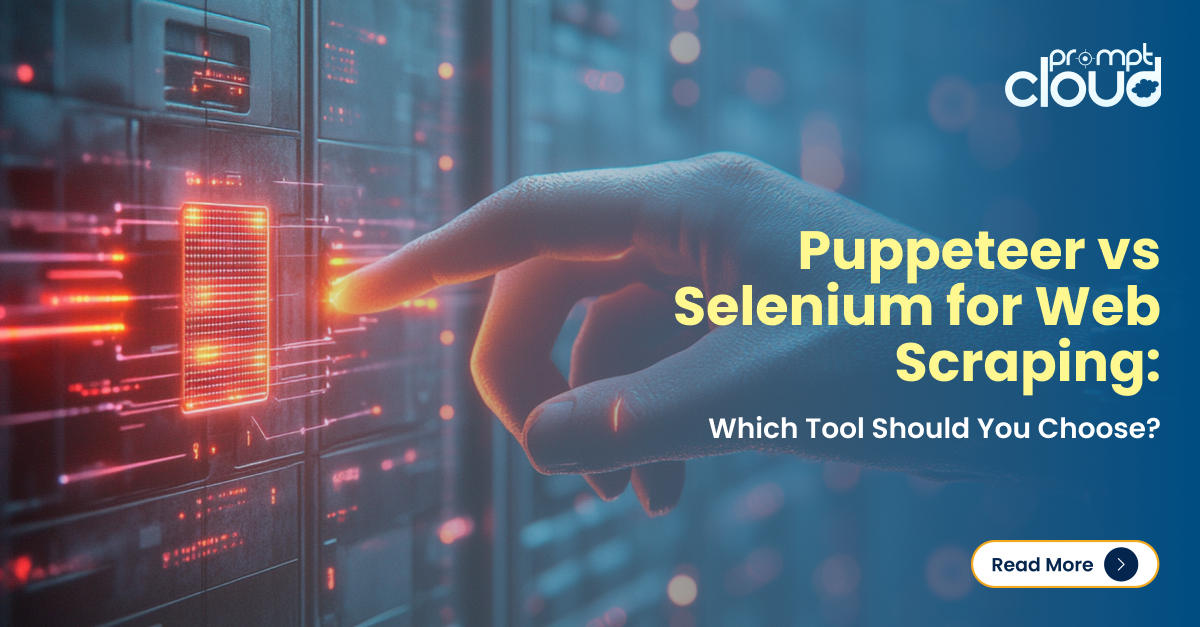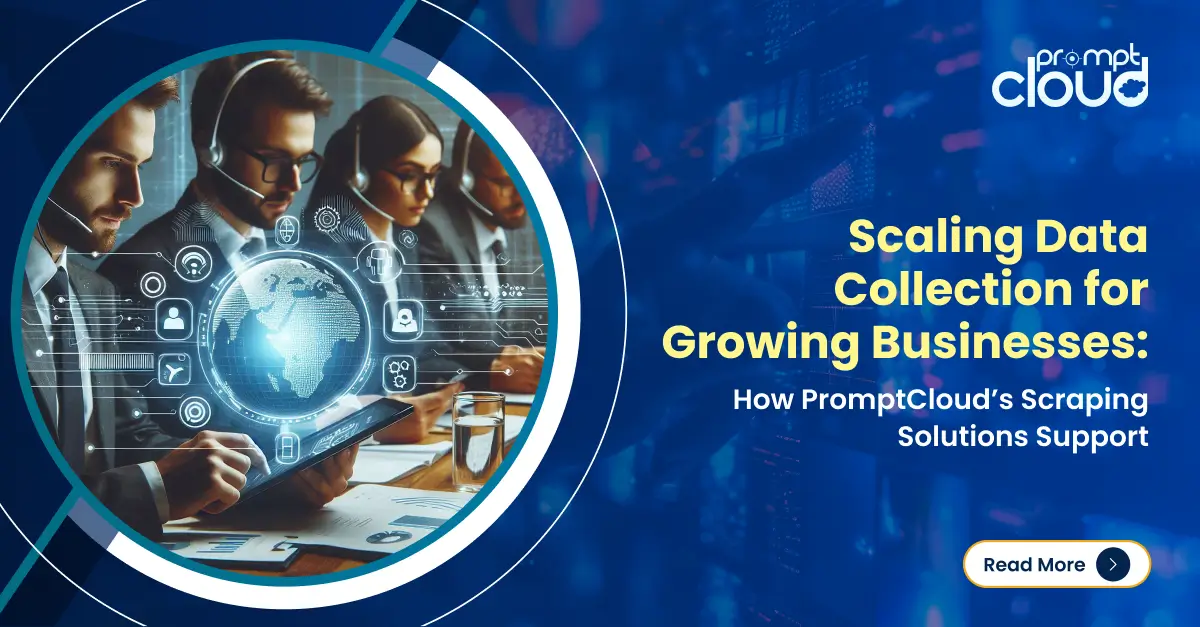
Web scraping has evolved from simple data extraction to a vital tool for data professionals. In a digital landscape where information is power, mastering advanced web scraping techniques is crucial. This article dives into sophisticated strategies that go beyond basic scraping.
Web Scraping Strategies
Advanced Web Scraping Libraries
Web scraping is not a one-size-fits-all task. Libraries like Scrapy offer robust frameworks for large-scale data extraction, while Selenium handles dynamic content with ease. Choosing the right tool depends on the project’s complexity and requirements.
Source: https://www.pickl.ai/blog/python-web-scraping-library/
Sophisticated Data Extraction Techniques
In the realm of web scraping, the ability to handle complex and dynamic websites is what separates beginners from experts. Sophisticated data extraction techniques are key in navigating modern web architectures that rely heavily on JavaScript and AJAX. These websites dynamically load content, making traditional scraping methods ineffective.
For instance, understanding and mimicking AJAX requests allows for the extraction of data that is loaded asynchronously. This often involves analyzing network requests and crafting specific HTTP requests to fetch the required data.
JavaScript-heavy sites pose another challenge. Here, tools like Selenium or Puppeteer are invaluable as they can execute JavaScript code, allowing scrapers to access the data that’s only available after certain client-side scripts are run. This is particularly crucial for scraping single-page applications (SPAs) where most of the content is rendered client-side.
Additionally, advanced scrapers must be adept at dealing with anti-scraping technologies. Websites often implement measures like CAPTCHA, IP blocking, or fingerprinting to prevent scraping. Sophisticated techniques to circumvent these include using CAPTCHA solving services, implementing IP rotation through proxy servers, and mimicking browser fingerprints to avoid detection.
Another advanced technique is the use of machine learning for pattern recognition and data classification. This can be particularly useful when scraping websites with non-standard data structures or when the data of interest is presented in various formats across different pages.
Moreover, handling large-scale scraping projects requires efficient management of resources. Techniques like request throttling and asynchronous programming prevent server overload and ensure a steady flow of data without triggering anti-scraping measures.
Finally, data post-processing plays a critical role in sophisticated web scraping. Extracted data often needs to be cleaned, normalized, and transformed to be useful. Regular expressions, data parsing libraries, and custom scripts are typically used to refine raw scraped data into a structured and usable form.
So, sophisticated data extraction isn’t just about scraping what’s on the surface. It requires a deep understanding of web technologies, strategic planning to overcome scraping barriers, and a robust approach to data handling and processing.
Headless Browsers and Automation
Headless browsers like Puppeteer enable automated, scriptable browser environments ideal for scraping. They’re indispensable for tasks that require interaction with web pages, such as form submissions or navigating through paginated content.
Web Scraping APIs and Services
In today’s data-driven environment, web scraping APIs and services have emerged as powerful tools for efficient data extraction. These services provide a streamlined approach to scraping, allowing data professionals to focus on data analysis rather than the complexities of data collection.
For instance, web scraping APIs offer a standardized way to extract data, often returning it in structured formats like JSON or XML. They handle the intricacies of scraping, including navigating complex websites, maintaining session states, and dealing with pagination. This simplifies the scraping process significantly, especially for large-scale data extraction projects.
Moreover, third-party web scraping services, like PromptCloud, offer comprehensive solutions that cater to diverse data needs. PromptCloud specializes in end-to-end data extraction, providing customized scraping services that are tailored to the specific requirements of a project. By leveraging such services, businesses can bypass the need for in-house scraping infrastructure and expertise, resulting in cost and time savings.
However, reliance on external services also implies a dependency on their capabilities and limitations. Data professionals need to consider factors like the service’s scalability, data quality, legal compliance, and how well it integrates with their existing data processing workflows.
In summary, web scraping APIs and services, including specialized providers like PromptCloud, represent a convenient and powerful option for data professionals. They offer a balance of efficiency, customization, and scalability, making them an attractive choice for both simple and complex data extraction needs.
In-House Tool Development
Developing custom scraping tools can be a game-changer for businesses needing specific data extraction capabilities. These tools can be tailored to unique requirements, offering greater control and scalability. However, they demand resources and expertise in development and maintenance.
Source: https://www.bitcot.com/best-automate-web-scraping-tools/
Ethical and Legal Considerations
Data professionals must navigate the legal and ethical landscape of web scraping responsibly. Respecting website terms of service and adhering to data privacy laws are not just legal necessities but also part of ethical conduct in data collection.
Future of Web Scraping
As web technologies evolve, so do web scraping strategies. Machine learning and AI are beginning to play a role in automated data extraction and pattern recognition, opening new avenues for advanced scraping.
Conclusion
Advanced web scraping is a dynamic field requiring a blend of technical skills, ethical understanding, and adaptability. By embracing these advanced strategies, data professionals can stay ahead in the ever-evolving world of data extraction.
Frequently Asked Questions
What is advanced web scraping
Advanced web scraping encompasses the utilization of sophisticated techniques and technologies to extract data from websites that are designed to be difficult to scrape. This includes sites with dynamic content loaded through JavaScript, those employing various anti-scraping mechanisms, or complex web applications that require specific interactions to access data. Advanced web scraping techniques are tailored to navigate these challenges effectively, ensuring the successful extraction of valuable data. Key components and strategies of advanced web scraping include:
Dynamic Content Handling
Many modern websites use JavaScript to dynamically load content, making it challenging for basic scraping tools that only parse static HTML to access such content. Advanced scraping methods involve using headless browsers or browser automation tools (e.g., Selenium, Puppeteer) that can execute JavaScript code, mimicking a real user’s browser to render the entire webpage including any dynamically loaded content.
Anti-Scraping Measures
Websites often implement measures to block or limit automated scraping activities. These can include CAPTCHAs, IP blocklists, and sophisticated rate limiting based on user behavior analysis. Advanced web scraping techniques may involve using CAPTCHA solving services, deploying proxy servers or VPNs to rotate IP addresses, and implementing strategies that mimic human browsing patterns to circumvent these barriers.
Interaction with Web Applications
Extracting data from web applications that require login credentials, interaction with forms, or navigation through multiple steps necessitates advanced web scraping capabilities. This includes managing sessions and cookies, automating form submissions, handling AJAX requests, and navigating through pagination or multi-step processes to access the required data.
Scalability and Efficiency
For large-scale scraping projects, advanced techniques focus on scalability and efficiency. This involves the use of distributed scraping frameworks, cloud-based solutions, and queue management systems to handle vast amounts of data and multiple scraping tasks simultaneously without compromising the performance or stability of target websites.
Data Processing and Quality Control
Advanced web scraping extends beyond data extraction to include sophisticated data processing and quality control measures. This might involve cleaning, structuring, and transforming raw data into a usable format, validating the accuracy of the data, and removing duplicates to ensure high-quality datasets.
Ethical and Legal Compliance
Advanced web scraping practices also consider ethical guidelines and legal compliance, including adherence to a website’s robots.txt directives, respecting copyright laws, and ensuring data privacy standards are met, particularly in jurisdictions with strict data protection regulations like GDPR in Europe.
In essence, advanced web scraping represents a comprehensive approach to data extraction, capable of overcoming the technical and ethical challenges presented by modern web environments. It leverages a combination of cutting-edge technologies and methodologies to access, extract, and process web data in an efficient, scalable, and legally compliant manner, making it invaluable for businesses and researchers who rely on accurate and up-to-date information from the web.
What is advanced web scraping in R?
Advanced web scraping in R refers to the use of the R programming language to implement sophisticated techniques for extracting data from web pages, especially those that present complexities such as dynamic content, anti-scraping measures, or requiring interaction with web forms. R, known for its powerful data manipulation and analysis capabilities, offers various packages and tools that can be used for advanced web scraping tasks. Here are some key aspects and tools involved in advanced web scraping with R:
Handling Dynamic Content with RSelenium
Dynamic content generated through JavaScript can be challenging for traditional scraping methods that only parse static HTML. The RSelenium package allows R users to automate a web browser, enabling interaction with web pages just as a human user would. This is particularly useful for scraping websites that require navigating through forms, clicking buttons, or performing other interactions to access data. RSelenium can control a browser to render dynamic content, making it accessible for scraping.
Using rvest for HTML Parsing
The rvest package is instrumental in extracting data from static web pages. It simplifies the process of reading HTML content, navigating the DOM (Document Object Model), and extracting specific elements based on CSS selectors or XPath queries. For advanced scraping tasks, rvest can be used to handle sessions, submit forms, and manage pagination, although it’s primarily effective with static content.
Overcoming Anti-Scraping Measures
Advanced web scraping may also involve strategies to circumvent anti-scraping measures such as IP blocking or rate limiting. While R itself does not directly offer tools for dealing with all such measures (like CAPTCHA solving), it supports using proxy servers or VPN services through configuration settings in scraping scripts. Packages like httr can be used to manage headers, cookies, and user-agent strings to mimic real user behavior more closely and avoid detection.
Parallel Processing for Efficiency
For large-scale scraping operations, efficiency and speed become crucial. The future, promises, and furrr packages in R allow for asynchronous operations and parallel processing, enabling the execution of multiple web scraping tasks concurrently. This can significantly reduce the time required for extensive scraping projects.
Ethical Considerations and Compliance
Advanced web scraping with R also involves ethical considerations and compliance with legal standards, including adhering to a website’s robots.txt rules and ensuring data privacy regulations are respected. R developers engaged in web scraping must consider these aspects to conduct their activities responsibly and legally.
Data Cleaning and Processing
Once data is scraped, R offers an extensive set of packages for data cleaning and processing, such as dplyr, tidyr, and stringr, which are essential for transforming raw web data into a structured and usable format. The tidyverse collection of packages provides a comprehensive toolkit for data manipulation, making R an excellent choice for end-to-end web scraping projects where data analysis is the ultimate goal.
In summary, advanced web scraping in R involves leveraging specific packages and techniques designed to tackle the complexities of modern web pages. By combining R’s data manipulation strengths with the capabilities of packages like RSelenium and rvest, users can perform sophisticated web scraping tasks, from interacting with dynamic content to processing and analyzing extracted data.
What is advanced web scraping python?
Advanced web scraping in Python refers to the utilization of sophisticated Python libraries and techniques to navigate and extract data from web pages that are difficult to scrape. This includes pages with dynamic content generated by JavaScript, those protected by anti-scraping measures, and complex web applications that require interaction for data access. Advanced web scraping goes beyond basic HTML requests and parsing, employing a variety of strategies to deal with the complexities of modern web technologies. Key elements of advanced web scraping in Python include:
Dynamic Content Scraping with Selenium or Playwright
For web pages that dynamically load content with JavaScript, libraries like Selenium or Playwright are used. These tools automate browser actions, allowing Python scripts to interact with web pages as a user would, including clicking buttons, filling out forms, and navigating through the site. This is crucial for scraping sites where the content of interest only loads as a result of user interactions or AJAX requests.
Asynchronous Scraping with Asyncio and aiohttp
When dealing with a large volume of requests, efficiency becomes key. Python’s asynchronous libraries, asyncio and aiohttp, allow for asynchronous HTTP requests, enabling faster data retrieval by making concurrent requests and waiting for responses in a non-blocking manner. This approach significantly improves the speed of scraping operations, especially for large-scale projects.
Handling Anti-Scraping Mechanisms
Advanced scraping techniques also include strategies to circumvent anti-scraping measures such as IP bans, CAPTCHAs, and rate limiting. This might involve using proxy servers to rotate IP addresses, implementing CAPTCHA solving services, and mimicking human behavior by varying request headers and timing to avoid detection.
Scrapy for Complex Crawling Projects
Scrapy is an integrated framework designed for web scraping and crawling at scale. It provides built-in support for extracting data, processing requests, handling cookies, and following redirects. Scrapy is particularly useful for structured data extraction across large websites, offering item pipelines for data cleaning and validation, and middleware support for extending its functionality.
Data Extraction and Processing
After successfully scraping the needed data, Python’s powerful data manipulation libraries, such as Pandas, are used for cleaning, processing, and transforming the scraped data into a structured and useful format. This step is crucial for preparing the data for analysis or storage in databases.
BeautifulSoup and LXML for HTML Parsing
While Selenium and Scrapy can handle many advanced scraping tasks, BeautifulSoup and LXML are indispensable for parsing HTML and XML documents. These libraries provide functions for easy navigation of the parse tree and extraction of data, ideal for simpler scraping tasks or post-processing of data collected through more complex means.
Ethical and Legal Considerations
Advanced web scraping with Python is not just about the technical means to extract data but also involves navigating ethical and legal considerations. This includes respecting a website’s robots.txt file, not overloading servers, and ensuring compliance with data protection laws and copyright restrictions.
Challenges of Advanced Web Scraping
The challenges addressed by advanced web scraping include navigating websites that load content dynamically, handling forms and sessions, and overcoming defenses against automated access. Advanced techniques are characterized by a combination of automation, programming skill, and understanding of web technologies, all aimed at efficiently accessing and extracting web data while minimizing the impact on the target websites and staying within legal and ethical boundaries.
In summary, advanced web scraping in Python represents the cutting edge of automated data extraction techniques, employing a range of tools and strategies to effectively gather data from the increasingly complex web environment.




















